In today’s fast-paced and competitive business landscape, it is crucial for companies to stay ahead of the curve and embrace technological advancements. To remain competitive and meet the growing demands of the industry, businesses must ensure they are equipped with the essential ‘machines for industry.’ These machines encompass a wide range of tools and technologies that streamline operations, enhance productivity, and drive overall business growth. In this article, we will explore the key machines for industry that every business should consider adopting to stay relevant and maximize their potential for success.
İçindekiler Tablosu
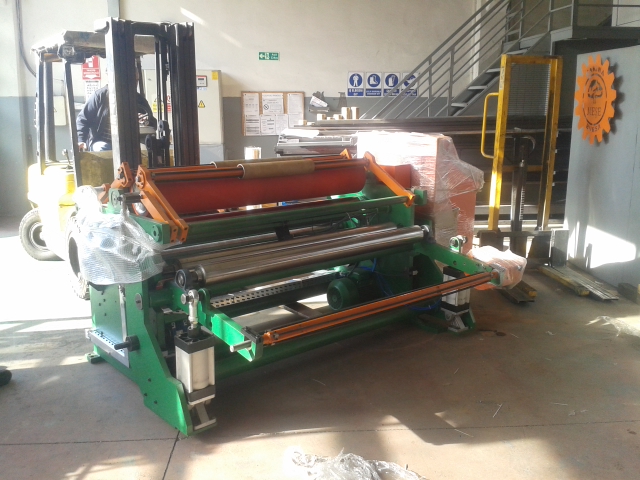
The Importance of Equipping Your Business
Before delving into the specific machines for industry, let’s first understand why it is crucial for businesses to invest in these tools. In today’s digital era, technology plays a pivotal role in transforming industries and revolutionizing business processes. By equipping your business with the right machines, you can:
- Boost Efficiency and Productivity: Implementing advanced machinery and technologies can significantly streamline operations, automate repetitive tasks, and improve overall efficiency. This enables businesses to accomplish more in less time, freeing up resources for other critical activities.
- Enhance Quality and Precision: Machines for industry are designed to perform tasks with precision and accuracy, resulting in improved quality of products or services. Consistency in delivering high-quality outputs helps build a strong reputation and customer loyalty.
- Reduce Costs and Save Time: By automating processes and reducing human intervention, businesses can minimize errors, save time, and cut down on operational costs. Investing in machines that optimize resource allocation and minimize waste can lead to substantial cost savings in the long run.
- Stay Competitive and Adapt to Market Demands: Businesses that fail to embrace technological advancements risk falling behind competitors. By equipping your business with the right machines, you can stay ahead of the curve, adapt to changing market demands, and remain competitive in your industry.
Now that we understand the importance of equipping your business, let’s explore some of the essential machines for industry that can drive success and growth.
Automated Manufacturing Systems
In the age of Industry 4.0, automated manufacturing systems have become a cornerstone for businesses operating in various industries. These systems leverage advanced robotics, artificial intelligence, and IoT (Internet of Things) technologies to optimize manufacturing processes, improve productivity, and ensure consistent product quality.
By implementing automated manufacturing systems, businesses can achieve:
- Increased Production Efficiency: Automated systems can perform repetitive tasks at a much higher speed and accuracy compared to human workers. This not only increases production efficiency but also minimizes errors and rework.
- Improved Safety: Robotic systems are often used to handle hazardous or physically demanding tasks, minimizing the risk of injuries to human workers. This ensures a safer work environment and reduces liability for businesses.
- Better Resource Allocation: Automated systems can monitor and optimize resource allocation, ensuring minimal waste and maximum utilization. This leads to cost savings and improved profitability.
To cite an example, automotive manufacturing giants like Tesla have embraced automated manufacturing systems to streamline their production lines, enhance efficiency, and deliver high-quality electric vehicles to the market.
Data Analytics and Business Intelligence Tools
In the digital age, data is considered the new gold. Businesses generate vast amounts of data every day, and leveraging this data effectively can provide valuable insights and a competitive edge. Data analytics and business intelligence (BI) tools enable businesses to make data-driven decisions, identify trends, and optimize operations.
Some key benefits of utilizing data analytics and BI tools include:
- Improved Decision-Making: Data analytics tools provide businesses with actionable insights derived from data. By analyzing patterns and trends, businesses can make informed decisions that drive growth and profitability.
- Enhanced Customer Understanding: Analyzing customer data allows businesses to gain a deeper understanding of their target audience’s preferences, behavior, and needs. This enables personalized marketing campaigns and better customer relationship management.
- Streamlined Operations: Data analytics can identify bottlenecks, inefficiencies, and areas of improvement within business processes. By addressing these issues, businesses can optimize operations, reduce costs, and enhance overall productivity.
Leading companies like Amazon and Netflix extensively utilize data analytics and BI tools to understand customer preferences, personalize recommendations, and drive customer satisfaction.
Cloud Computing Infrastructure
The advent of cloud computing has transformed the way businesses store, access, and manage their data and applications. Cloud computing offers numerous benefits, including scalability, cost-effectiveness, and enhanced collaboration. By leveraging cloud infrastructure, businesses can unlock new possibilities and drive innovation.
Key advantages of adopting cloud computing infrastructure include:
- Scalability and Flexibility: Cloud platforms allow businesses to scale their infrastructure based on demand, providing the flexibility to accommodate growth or handle fluctuations in workload. This eliminates the need for large upfront investments in hardware and software.
- Cost Savings: Cloud computing eliminates the need for businesses to maintain and manage on-premises infrastructure, which can be expensive and time-consuming. By paying for cloud services based on usage, businesses can significantly reduce costs.
- Improved Collaboration: Cloud platforms offer seamless collaboration tools that enable teams to work together on projects, share documents, and communicate in real-time. This enhances productivity and fosters teamwork, especially in remote or distributed work environments.
Industry leaders like Salesforce and Google have built their businesses around cloud-based solutions, enabling businesses of all sizes to leverage the power of cloud computing.
Internet of Things (IoT) Devices
The Internet of Things (IoT) refers to the network of interconnected devices embedded with sensors, software, and connectivity capabilities. IoT devices collect and exchange data, enabling businesses to monitor and control various aspects of their operations in real-time.
By incorporating IoT devices into their infrastructure, businesses can achieve:
- Remote Monitoring and Management: IoT devices allow businesses to remotely monitor and manage equipment, assets, and processes. This reduces the need for physical intervention and enables proactive maintenance and issue resolution.
- Improved Efficiency and Sustainability: IoT devices can optimize resource consumption, detect inefficiencies, and provide insights for improving energy efficiency. This not only reduces costs but also contributes to sustainable and environmentally friendly practices.
- Enhanced Customer Experience: IoT devices enable businesses to gather data on customer usage patterns and preferences. This data can be leveraged to deliver personalized experiences, anticipate customer needs, and enhance overall satisfaction.
Companies like General Electric (GE) utilize IoT devices to monitor and maintain industrial equipment, ensuring optimal performance and minimizing downtime.
Cybersecurity Solutions
With the increasing prevalence of cyber threats, businesses must prioritize cybersecurity to protect their sensitive data, intellectual property, and customer information. Cybersecurity solutions encompass a range of tools and technologies that safeguard business assets from unauthorized access, data breaches, and malicious activities.
By implementing robust cybersecurity measures, businesses can:
- Protect Sensitive Data: Cybersecurity solutions help encrypt and secure sensitive data, preventing unauthorized access and ensuring compliance with data protection regulations.
- Prevent Disruptions and Downtime: Cyber attacks can lead to costly disruptions and downtime. Implementing cybersecurity measures mitigates the risk of such incidents and ensures business continuity.
- Build Trust and Reputation: In an era where data breaches make headlines, customers value businesses that prioritize their security. By investing in cybersecurity, businesses can build trust, enhance their reputation, and gain a competitive edge.
Leading cybersecurity companies like Cisco and Symantec offer a range of solutions to protect businesses from evolving cyber threats.
FAQs
FAQ 1: What are the essential machines for industry?
The essential machines for industry encompass a wide range of tools and technologies that businesses should consider adopting. These include automated manufacturing systems, data analytics and business intelligence tools, cloud computing infrastructure, IoT devices, and cybersecurity solutions.
FAQ 2: How do machines for industry benefit businesses?
Machines for industry provide several benefits to businesses, including improved efficiency and productivity, enhanced product quality, cost savings, and the ability to stay competitive and adapt to market demands. These machines streamline operations, automate tasks, optimize resource allocation, and drive overall growth and profitability.
FAQ 3: Can small businesses afford these machines?
While the initial cost of adopting machines for industry can be a significant investment, the long-term benefits outweigh the upfront expenses. Moreover, technology advancements have made these machines more accessible and affordable, even for small businesses. Additionally, cloud-based solutions offer cost-effective alternatives that eliminate the need for substantial upfront investments in hardware and infrastructure.
FAQ 4: How do machines for industry contribute to sustainability?
Machines for industry can contribute to sustainability by optimizing resource consumption, minimizing waste, and improving energy efficiency. IoT devices, for example, enable businesses to monitor and control energy usage, reducing their environmental footprint. Additionally, automation and streamlined processes result in fewer errors and less material waste.
FAQ 5: What are some challenges in implementing machines for industry?
Implementing machines for industry may pose challenges such as the need for employee training and upskilling, integration with existing systems, data security concerns, and resistance to change. However, with proper planning, communication, and support, these challenges can be addressed and overcome.
FAQ 6: How do I determine which machines are right for my business?
When evaluating machines for industry, businesses should consider their specific needs, industry requirements, budgetary constraints, and long-term goals. Conducting thorough research, consulting with experts, and assessing the potential return on investment (ROI) can help in making informed decisions about the machines that align with the business’s objectives.
Conclusion
In today’s rapidly evolving business landscape, it is crucial for businesses to equip themselves with the essential machines for industry. By embracing technology and adopting tools such as automated manufacturing systems, data analytics and business intelligence tools, cloud computing infrastructure, IoT devices, and cybersecurity solutions, businesses can enhance efficiency, productivity, and competitiveness. These machines enable businesses to streamline operations, make data-driven decisions, optimize resource allocation, and protect their assets. To stay relevant and maximize their potential for success, businesses must assess their needs, explore available options, and invest in the machines that align with their goals. So, is your business equipped with these essential ‘machines for industry’?

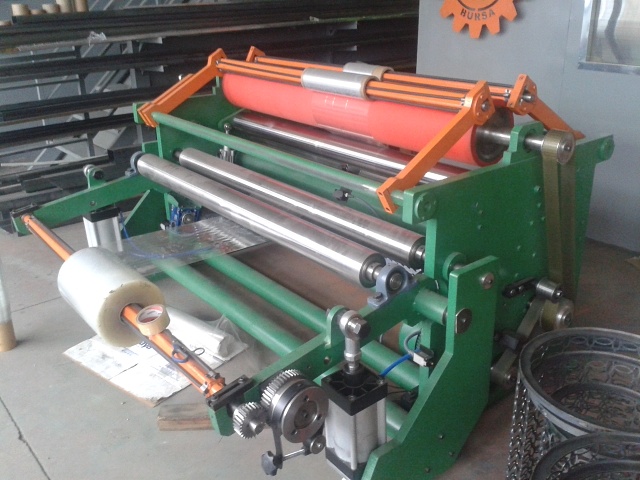
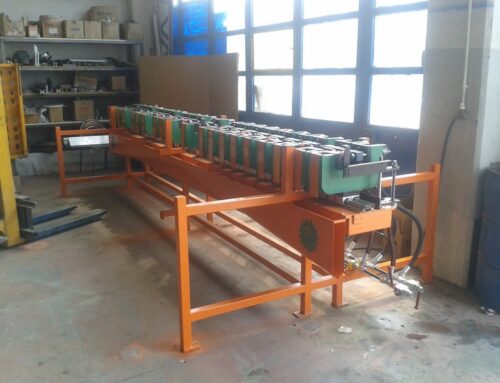
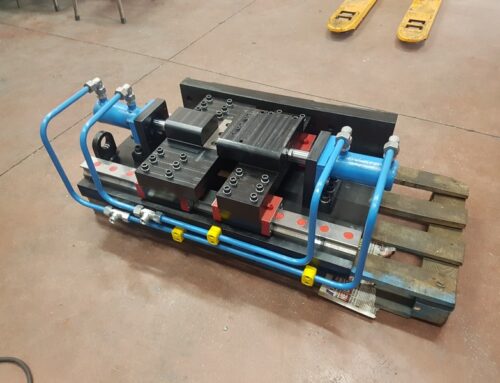
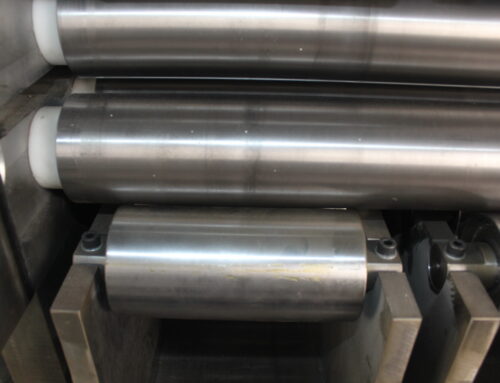
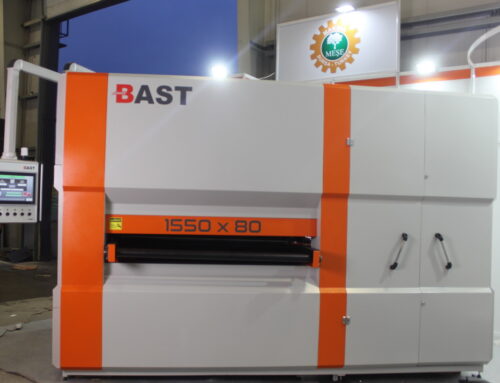

Leave A Comment